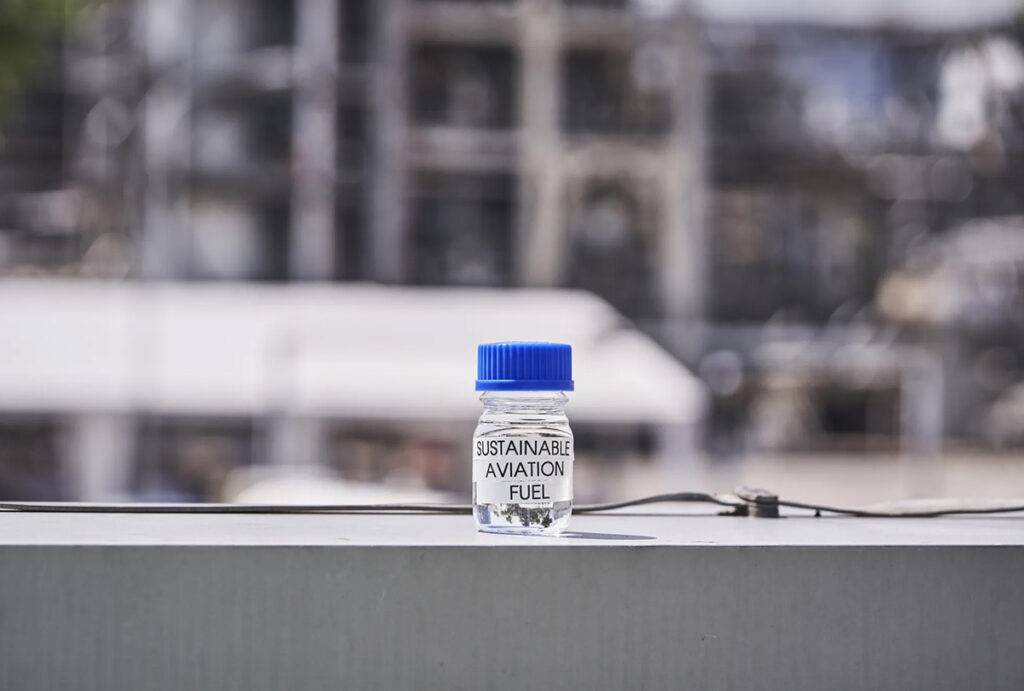It’s good for the planet and good for farmers, yet sustainable aviation fuel is struggling to gain momentum with the Trump administration.
By Kim Chipman

A sample of sustainable aviation fuel produced at Neste Oyj’s refinery in Singapore. Photographer: Lauryn Ishak/Bloomberg
Today, reporter Kim Chipman unpacks the challenges in boosting US production of sustainable aviation fuel.
Four years ago, former US President Joe Biden issued a “Grand Challenge” for the country to produce 3 billion gallons of sustainable aviation fuel by decade’s end. The aim was to help decarbonize air travel while locking in a steady source of demand for US corn and soybeans as raw materials to make the biofuel.
Hitting that target requires a quantum leap from the fledgling SAF sector, which produced just 5 million gallons in 2021. Production accelerated this year, but the task is daunting: Output was about 40 million gallons in February, according to the most recent government data.
US producers say they’re being held back by a lack of clarity on a tax break that took effect in January. Known as 45Z, the incentive is part of Biden’s landmark climate law and provides a per-gallon credit for makers of clean transportation fuels based on carbon intensity.
That ambiguity is curtailing green diesel production and pushing smaller biodiesel companies to operate at a loss, said Joe Jobe, chief executive officer of the Sustainable Advanced Biofuel Refiners trade group.
The 45Z problem is compounded by Biden-era blending mandates for biomass-based biodiesel that were set far below production capacity levels, industry executives and lobbyists said.
“The chances that we hit the Grand SAF challenge in 2030 are zero,” Bruce Fleming, the boss of producer Montana Renewables, said in an interview at the Fastmarkets Biofuels and Feedstocks conference in Chicago.
“None of the new plants will get financed because none of the lenders are going to believe government policy is stable enough that they can trust it.”
The biofuel industry — and farmers — now pin their hopes on President Donald Trump supporting higher renewable-volume obligations that mandate how much biofuels go into the overall fuel supply.
Lobbying groups and farm-state governors are asking the administration to raise next year’s obligation to 5.25 billion gallons from the current 3.25 billion gallons.
But there’s no clarity on whether that will happen. The White House has signaled some support for liquid biofuels, but it’s been far more vocal in promoting fossil fuels and rolling back climate initiatives.
–Kim Chipman, Bloomberg News
Share This:




 CDN NEWS |
CDN NEWS |  US NEWS
US NEWS 


























